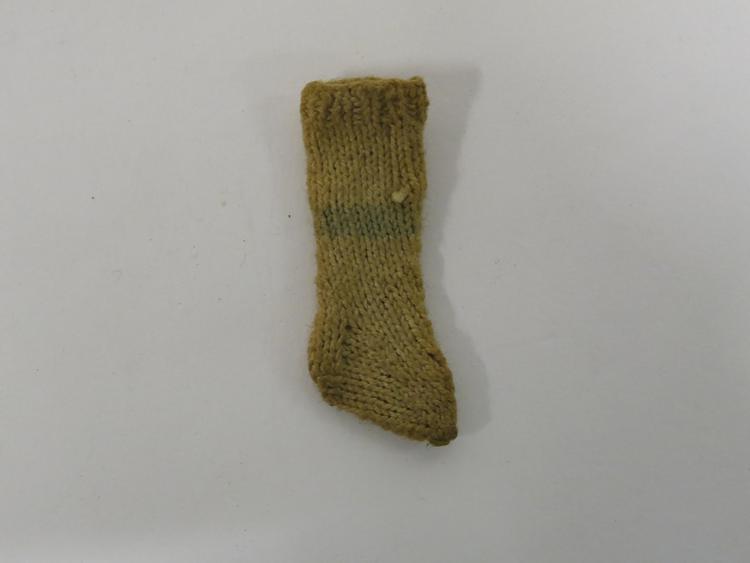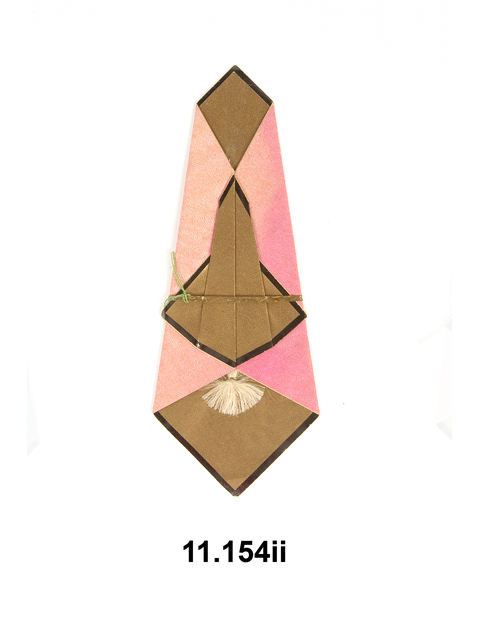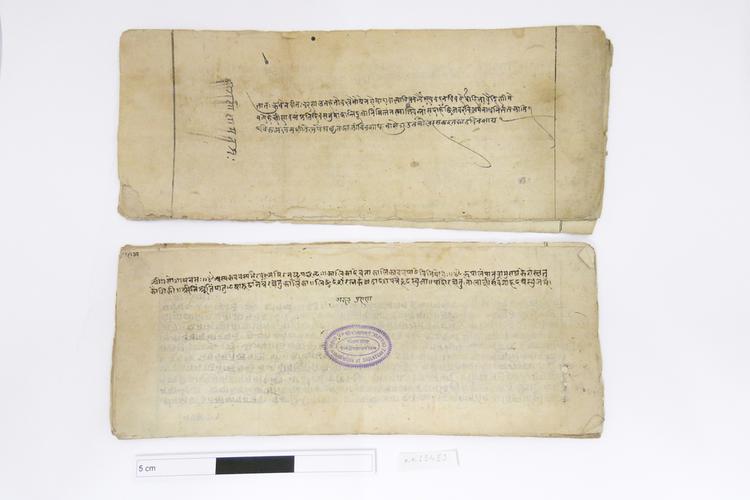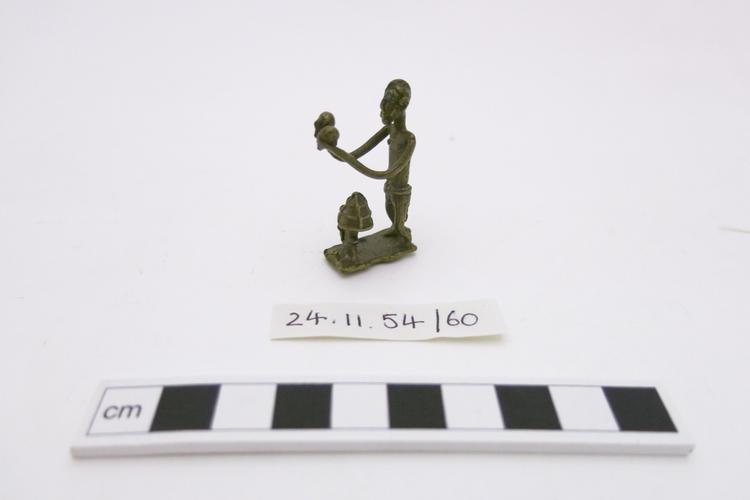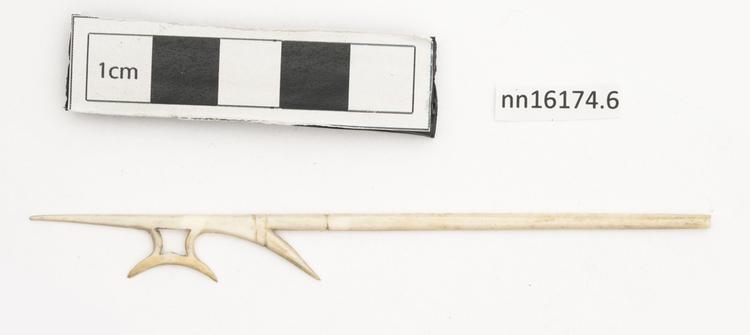
One of a set of 12 bone or ivory spillikins in the shape of Chinese weapons. This one is shaped like a spear with a single halberd and an additional carved blade on the same side.
Spillikins or Spellicans has been played all over the world for centuries and is thought to have originated in China. The game has different names in different countries. In the UK it is often known as Pick-Up Sticks while in Europe it is generally known as Mikado. It is also called Jackstraws in the USA, Jonchets in France and Chien Tung in China. Spillikins is played by scattering a group of thin sticks out on a table so they are all mixed up in a pile. This is done by holding all the sticks upright in a bunch and letting them fall. Players take turns picking them up, one by one, without moving any of the others. The sticks can be different shapes or colours, and this indicates their their different scores. Although most of the picking up is done by hand, certain designated sticks can be used to dislodge their fellows. This particular set has two hooks that can be used for this purpose. Players continue to pick up sticks until they disturb a different stick to the one they are trying to remove. Once all the sticks have been picked up, the scores are counted and the person with the highest is the winner. Traditionally the sticks were made from bone, ivory or wood but now they are often made from plastic.



